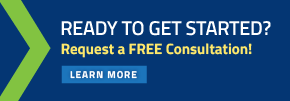For veterans operating a small business, exporting American-made products provides a proven path to success that capitalizes on their global experience and military skill to reach the vast consumer base abroad.
The Export-Import Bank of the United States (EXIM) can help veteran-owned businesses on this journey, with trade finance tools needed to begin or expand the export of both goods and services to new markets. According to the most recent data from the U.S. Census Bureau, veteran-owned businesses make up nearly 6 percent of all U.S. employer businesses — meaning those business with more than one employee — accounting for an estimated $963.4 billion in receipts, 4 million employees, and about $191.6 billion in annual payroll.
Those numbers illustrate the entrepreneurial accomplishment of military veterans in the business sector. Adding an international component can compound that success. With 95 percent of the world’s consumers living outside the United States, exporting can be the strategic growth opportunity that takes a business — no matter how small — to the next level. With their unique combination of global understanding and military skillset, veteran-owned businesses are well positioned to thrive in the international marketplace.
Providing Resources to Level the Playing Field
While the prospect of selling internationally may sound daunting, veteran-owned businesses don’t need to do it alone. There are federal, state, and local government resources available to help at every step along the path to global sales.
The National Survey of Military-Affiliated Entrepreneurs found that 45 percent of military veterans consider themselves to be a social entrepreneur — and that number jumps to nearly 60 percent for women veterans as well as Black and African American veterans. But the survey also showed that a lack of initial capital and a lack of financing options were frequently cited barriers to entrepreneurship for all veterans.
That’s where EXIM comes in, offering export finance tools and resources designed to address such barriers and alleviate those concerns, including:
- Export Credit Insurance, which enables U.S.-based businesses to offer competitive open account credit terms, while also protecting them against the risk of not getting paid.
- Working Capital Loan Guarantee, which unlocks vital cash flow and expands the borrowing base by providing a guarantee to lenders, so they will be more willing to lend money to purchase or manufacture goods and services destined for export.
EXIM helps level the playing field for U.S. businesses, including those owned by veterans, so they can compete effectively around the globe. In fact, nearly 90 percent of EXIM’s transactions directly benefit small businesses.
Helping Veteran Business Owners Compete Effectively
To support underserved businesses, EXIM has a Minority and Women-Owned Business Division (MWOB) that works closely with organizations that have a minority trade focus, to help spread the word about EXIM financing and create opportunities for export-ready U.S. businesses that are owned by minorities, women, veterans, and individuals with disabilities.
To reach businesses operated by veterans, the MWOB team collaborates with other government agencies, business development associations, and veterans' organizations, such as the National Veteran Business Development Council, the Women Veterans Alliance, the Department of Veterans Affairs Office of Small and Disadvantaged Business Utilization, and VetsGoGlobal, an initiative of the U.S. Commercial Service whose trade programs work in tandem with EXIM’s finance tools.
EXIM provides numerous tools to help veteran-owned businesses begin or expand their export journeys. EXIM President and Chair Reta Jo Lewis encourages small businesses interested in exporting to take advantage of the resources that are available. “If you are considering export opportunities in your own business, I hope you will think EXIM,” she said. “Our dedicated minority and women-owned business specialists are ready to assist you on your journey.”
Hear from a Peer: Indiana Company Grows by Exporting
Established in 1973, Jeco Plastic Products is a global leader in the development and production of custom and durable plastic pallets. Jeco’s products have far-reaching applications, having been aboard the International Space Station and sold on every continent.
Jeco’s CEO, Craig Carson, credits EXIM with helping his business grow through exporting. When the Army combat veteran and West Point graduate purchased the company in 1998, he realized that shrinking domestic markets meant exporting was crucial to ensuring growth for the small business based in Plainfield, Indiana.
Beginning in 1998, Mr. Carson turned to EXIM’s export credit insurance to protect his company’s foreign receivables from nonpayment by international buyers. That allowed the company to offer open account credit terms to its customers, which paved the way for double-digit sales growth. Exports now comprise about two-thirds of Jeco’s sales volume, and the company ships to markets in Western and Eastern Europe, North and South America, Japan, and the Middle East.
Mr. Carson, who has used EXIM for more than two decades, said “it is the single most important decision I have made in international business. EXIM credit insurance provides protection for small businesses to avoid nonpayment issues in foreign markets. It has saved me from significant financial difficulties, and it would be an enormous oversight not to use this wonderful service.”
You can see more stories here about how other U.S. small businesses, like Jeco Plastic Products, have found success by taking their business global. To talk with an MWOB trade finance specialist who works directly with veteran-owned companies, schedule a free consultation and launch your export journey today.
